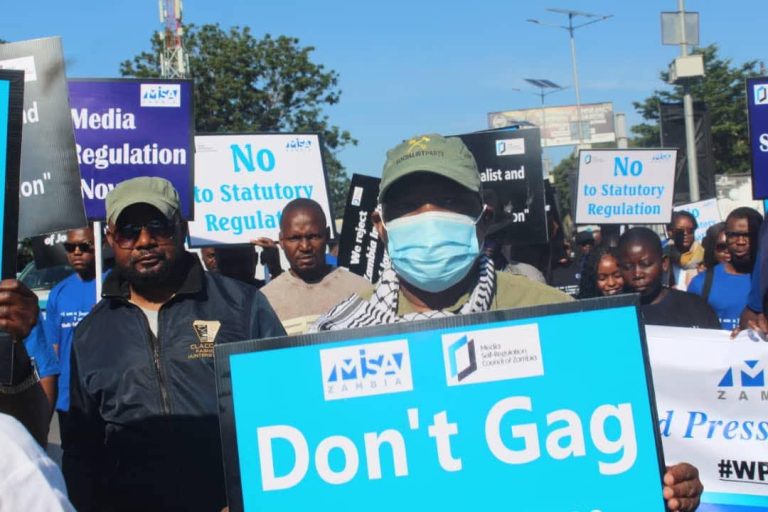LUSAKA, ZAMBIA: A rift has emerged among Zambian journalists over a proposed statutory regulation aimed at governing the media in the southern African nation.
One group, including the Media Institute of Southern Africa (MISA) Zambia, Media Owners Association of Zambia (MOAZ), Free Press Initiative (FPI), BBC Media Action, and Panos Southern Africa, has endorsed self-regulation of the media. Meanwhile, another group, largely from state-owned media, has aligned with the Media Liaison Committee (MLC) in supporting the government-backed Zambia Institute of Journalism (ZIJ) Bill 2025.
On Sunday, MLC Chairperson Felistus Chipako launched scathing criticism at the Swedish Embassy in Lusaka, accusing it and BBC Media Action of sponsoring a parallel march during World Press Freedom Day (WPRD) celebrations.
Ms. Chipako went further, threatening to recommend the deportation of BBC Media Action representatives and to report the Swedish government for allegedly fueling divisions among journalists in Zambia.
Veteran journalist and former presidential press aide to Zambia’s sixth president, Amos Chanda, also weighed in. While endorsing self-regulation, he advised that dialogue on the issue should continue.
Chanda, now an advisor to the ruling UPND’s media team, stated: “Self-regulation has always been the party’s position. You have heard it from President Hakainde Hichilema—that is policy.”
On Saturday, May 3, over 100 journalists, including journalism students in Lusaka, staged a protest against the proposed statutory regulation, urging the government to halt the legislative process.
The protesters raised concerns that the bill could severely impact media freedom in the country.
Their demonstration comes just a week after several media stakeholders publicly opposed the proposed law.
While the government argues that the bill is intended to regulate journalistic conduct and professional standards, opponents contend that statutory regulation poses a threat to press freedom. They maintain that the existing self-regulatory framework—established with government support—is sufficient.


